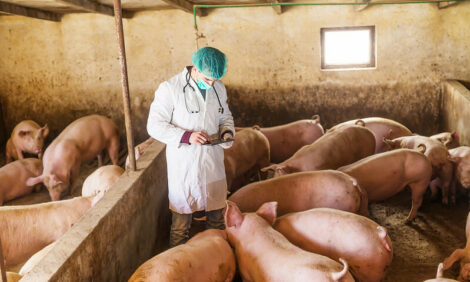



Pig Industry Monitored to Ensure No H1N1 Effect
TRINIDAD & TOBAGO - As the health authorities maintain surveillance of the novel Influenza A H1N1 in the human population to restrict its spread, local veterinary authorities are keeping vigilant so pigs do not acquire the virus from humans.Dr Lisanne Fermin, Public Health Specialist, School of Veterinary Medicine (SVM), University of the West Indies said the concern among vets is animal susceptibility.
"If the virus was shown to cause disease in animals via circulation it could worsen regional and global situations for public health," Dr Fermin said.
She said investigations were still being done into the source and risk of the virus for animals.
The strain has been isolated in pigs in the US and Argentina, but the source of these infections is not yet known.
Speaking at the Caribbean Academy of Sciences forum on Swine Flu at Ampitheatre A, Eric Williams Medical Sciences Complex, Mt Hope on Tuesday, Fermin said the veterinary objective in TT was to prevent the introduction of the virus into the local swine herd via infected persons. The SVM has made a recommendation to work with pork producers to ensure adherence to bio security practices “particularly for persons who work on farms and abattoirs“.
The same advice for the general public applies to persons working on farms, according to Trinidad and Tobago's Newsday. Fermin said persons showing signs and symptoms of the flu should not go to work and they should contact their doctor.
According to Fermin bio-security aimed to ensure good hygienic practices were in place and practised at all times. She said most pig farms in TT were in isolated areas and had strict bio-security in place. However, the concern was for the small “backyard“ pig farmers who had an “uncontrolled flow of human traffic and are situated within communities or near roadways.“ Fermin said disease can spread via movement of animal, people, vehicles and equipment between and within farms because of unsatisfactory cleaning and disinfection.
She said the small farmers should keep their farms clean, protective clothing and footwear should be removed and disinfected and clean overalls and footwear worn when entering farms.

